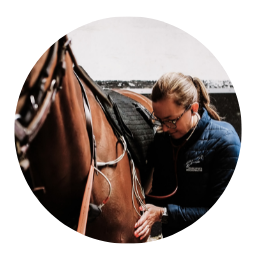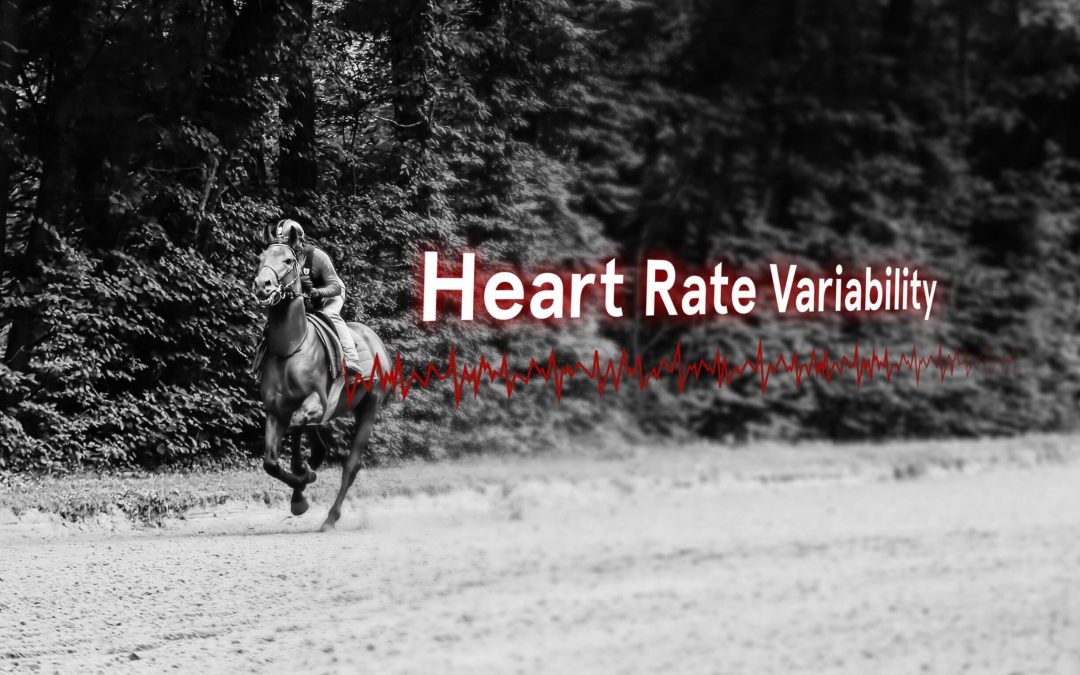Cardiac variability or heart rate variability is a measure of interval variation between the horse heartbeats on a given period of time. This measurement provides valuable information about the health and well-being of horses and their training.
Dr Emmanuelle van Erck (DVM, PhD, ECEIM), a specialist in equine internal and sports medicine has been working on cardiac variability. During this interview you will discover the importance of measuring heart rate variability in the athletic horse.

How would you define cardiac variability?
Heart rate variability (HRV) is different from the heart rate. It assesses whether the time between each beat is constant, or whether it is subject to variability, over a given period of time.
The degree of variability reflects the degree of relaxation of the nervous system. The more relaxed you are, the greater the variability between the different heartbeats; whereas the more stressed you are, or the more pain you feel, the lower the variability will be.
To sum up, it is a measure that will indicate the state of stress or relaxation of a person or a horse during a given period of time.
How to measure heart rate variability?
In order to measure heart rate variability, you have to measure the heart rate and be able to identify the time/distance between each beat. You need a system that not only measures heart rate but also allows you to identify the delay between consecutive beats. This can be evaluated by using electrodes placed at the level of the heart.

“EQUIMETRE is one of the only systems validated scientifically specifically for cardiac variability measurement in horses.”
Dr Emmanuelle VAN ERCK
What role can EQUIMETRE take in this measurement?
EQUIMETRE is a sophisticated device that goes beyond a simple heart rate sensor as it can simultaneously record HR and ECG. EQUIMETRE can reliably evaluate the difference between one heartbeat and the next and therefore the variability of heart rate. It is one of the only systems validated scientifically specifically for this kind of measurement in horses.
What are the factors influencing the HRV?
There are many factors that can influence the HRV. On the one hand, when you are stressed or ill, you have a lower heart rate variability because the body will be “under stress”. On the other hand, when you are relaxed or when you are coping well with your physical training, the variability of your heart rate will be higher.
What information can HRV measurements and analysis provide us with?
In the human athlete, the HRV is measured at rest. Its measurement allows us to know whether the athlete is in good physical condition and provides information on how the athlete handles his training. A low HRV can be a sign of overtraining.
In horses, we are not yet able to precisely assess the correlation between HRV and training tolerance, or even overtraining, but these are projects we are ongoing.
What are the advantages of analyzing cardiac variability in racehorses?
It allows us to know if horses are in a healthy normal state or if they suffer from an underlying pathology or abnormal stress. It is a reflection of the state of pressure and stress on the body.
Keywords: maximum heart rate, racehorse cardiac variability, racehorse beats per minute



